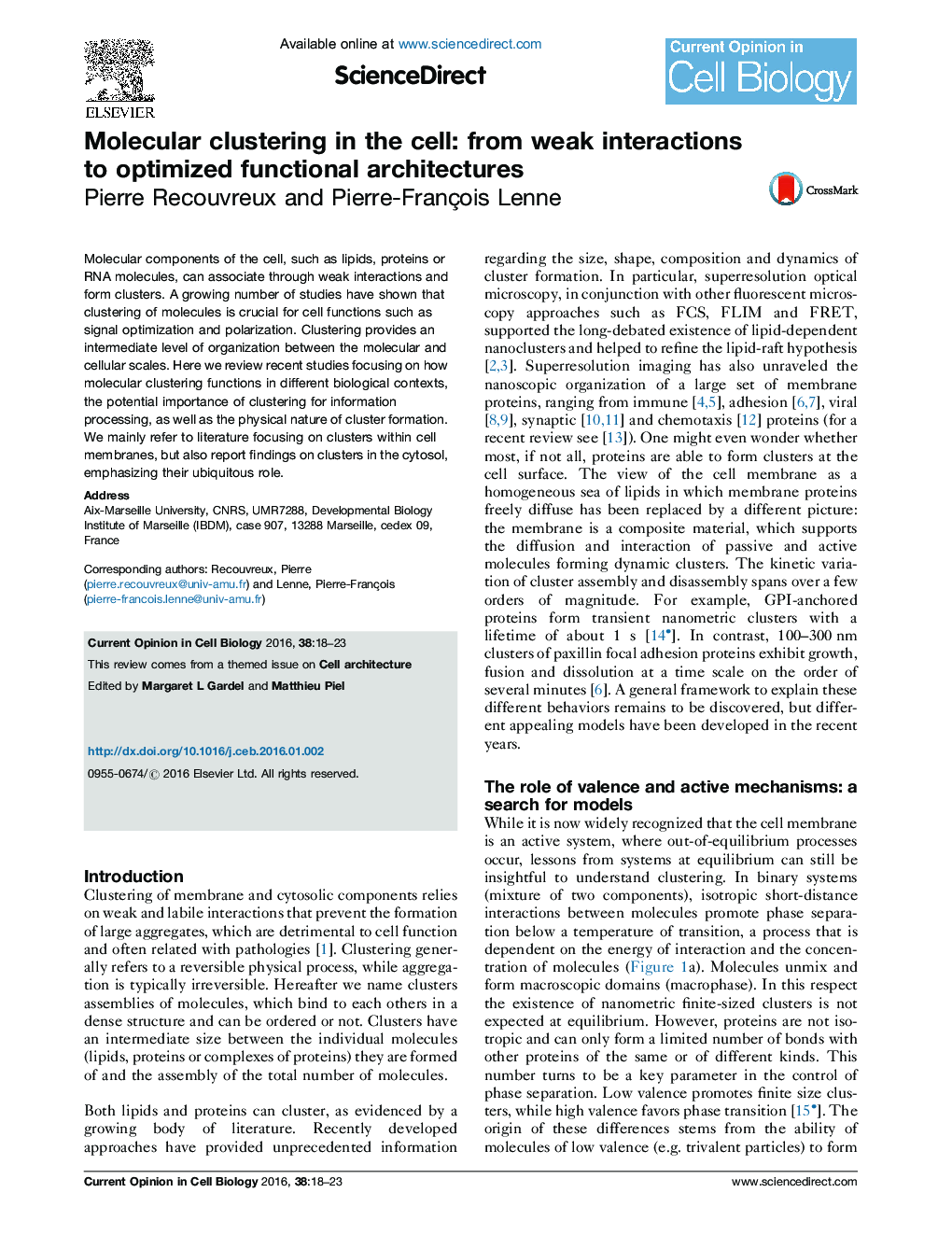| Article ID | Journal | Published Year | Pages | File Type |
|---|---|---|---|---|
| 8465311 | Current Opinion in Cell Biology | 2016 | 6 Pages |
Abstract
Molecular components of the cell, such as lipids, proteins or RNA molecules, can associate through weak interactions and form clusters. A growing number of studies have shown that clustering of molecules is crucial for cell functions such as signal optimization and polarization. Clustering provides an intermediate level of organization between the molecular and cellular scales. Here we review recent studies focusing on how molecular clustering functions in different biological contexts, the potential importance of clustering for information processing, as well as the physical nature of cluster formation. We mainly refer to literature focusing on clusters within cell membranes, but also report findings on clusters in the cytosol, emphasizing their ubiquitous role.
Related Topics
Life Sciences
Biochemistry, Genetics and Molecular Biology
Cell Biology
Authors
Pierre Recouvreux, Pierre-François Lenne,
